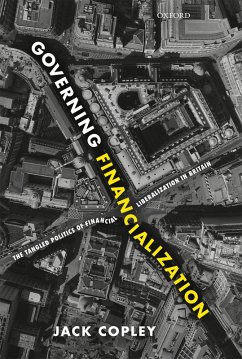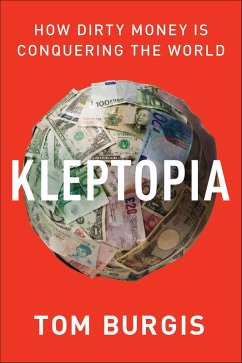
The Architecture of Collapse (eBook, ePUB)
The Global System in the 21st Century

PAYBACK Punkte
6 °P sammeln!
Why are there so many crises in the world? Is it true that the global system is today riskier and more dangerous than in past decades? Do we have any tools at our disposal to bring these problems under control, to reduce the global system's proneness to instability? These are the tantalizing questions addressed in this book. Using a variety of demographic, economic, financial, social, and political indicators, the book demonstrates that the global system has indeed become an 'architecture of collapse' subject to a variety of shocks. An analysis of the global financial crisis of 2008, the bilat...
Why are there so many crises in the world? Is it true that the global system is today riskier and more dangerous than in past decades? Do we have any tools at our disposal to bring these problems under control, to reduce the global system's proneness to instability? These are the tantalizing questions addressed in this book. Using a variety of demographic, economic, financial, social, and political indicators, the book demonstrates that the global system has indeed become an 'architecture of collapse' subject to a variety of shocks. An analysis of the global financial crisis of 2008, the bilateral relationship between the U.S. and China, and the European sovereign debt crisis illustrates how the complexity and tight coupling of system components creates a situation of precarious stability and periodic disruption. This state of affairs can only be improved by enhancing the shock-absorbing components of the system, especially the capacity of states and governments to act, and by containing the shock-diffusing mechanisms. In particular, those related to phenomena such as trade imbalances, portfolio investment, cross-border banking, population ageing, and income and wealth inequality.
Dieser Download kann aus rechtlichen Gründen nur mit Rechnungsadresse in A, B, BG, CY, CZ, D, DK, EW, E, FIN, F, GR, HR, H, IRL, I, LT, L, LR, M, NL, PL, P, R, S, SLO, SK ausgeliefert werden.













